As tensions rise between India and Pakistan, the usual arguments are being repeated on both sides of a serious divide in India on how to deal with that country. The reason we are unable to get the relationship right is that the country and the public discourse is in the grip of some fallacies that we have adopted unquestioningly, particularly at the official level. What follows is an attempt at busting some of the myths. This is important because it is these errors that are leaving us lurching from one failed start to another.
A hard line response will strengthen their hardliners
It is commonly argued that if India were – hypothetically – to adopt a firm line in responding to Pakistani provocations, that would only play into the hands of the military and the terror networks supported by the military. A bit of history will be useful here. The Pakistan army first took power in 1958. Since then, it has been in effective control of security policies more or less without let-up till today. There have been some moments, though, when the military was weakened. The first was in 1971, after the defeat in Bangladesh. The second, less stark, moment was in 2011, after the US incursion in Abbottabad, to kill and snatch Osama bin Laden. On that occasion, the head of the ISI had been forced to apologise to the “bloody civilians” in the Pakistan National Assembly and offer to quit.
Both these were occasions when hard power had been exercised against the army, and it had been defeated. Indeed, this is a basic rule of statecraft: when you defeat a policy, you defeat the authors of that policy.
Parallels from other countries abound. Hitler was not stopped by appeasement; he was finally stopped only by war. And it was only when defeat looked certain that there was a move from within to unseat him, in July 1944. Similarly, Khrushchev was strengthened and the Soviet military weakened after the Cuban Missile Crisis ended with the Soviets pulling their missiles from Cuba.
To look at it another way: if it is true that a hard line on our side strengthens the hardliners in Pakistan, then the corollary must be that a soft line [appeasement, which we have been practising for decades now] should strengthen the moderates. But this has clearly not happened; in fact, over the years of appeasement, the contrary has happened, and the military has only got stronger, as its policies of bleeding India have gone unchallenged.
We shall all grow together or none will grow
It is also sometimes formulated in terms that suggest that peace is vital for the Indian economy to grow. Again, history is a good guide. We had peace with Pakistan in the 1970’s, and indeed, Gen Zia-ul-Haq called it the golden period in Indo-Pakistan relations. And yet, the decade of the 1970’s was the very bleakest in the economic history of independent India. By contrast, the period after 1993 has been the most turbulent in the subcontinent, and this has been the period of the best Indian economic performance.
Pakistan has maintained its own pace through this period, somewhat better than India in the 1970’s and significantly worse since the 1990’s, to the point where it has become the sick man of Asia. There is no correlation between the rates of growth in India and Pakistan. And there is logic in this. There is little trade between us – for India the total trade turnover with Pakistan is less than 1% of our global trade turnover of US$ 600 billion. Our GDP is ten times that of Pakistan, a fact our analysts rarely mention, though we are constantly told – wrongly – that China’s GDP is four times that of India.
We have to help [current leader] survive and strengthen him/her
Time was when it was the Americans who used to tell us that this or that leader was our “best bet” – it started with Ayub, and thereafter, we did not need to be told. We sold this hokum to ourselves. After Zulfikar Ali Bhutto – the man who promised a thousand-year war, it was Gen Zia. Of course, it was but natural that it had to be Benazir after that, and then it was Mian Nawaz Sharif. And so goes the dreary cycle – it turns out it is now in our own interest to strengthen Mian Nawaz.
This begs two questions: is any leader worth strengthening at the cost of our own interests, and can it be done by any outsider? As to the first, the proposition that we need to strengthen this or that leader is dangerous nonsense. It was in this mistaken belief that even as shrewd a leader as Indira ji was led astray at Simla in 1972. Her laudable motivation was to shore up Bhutto, so that he, in turn, could keep his promise to settle the Kashmir issue on terms acceptable to both sides. But just as soon as he could, he turned his back on the understanding, and we are paying in the blood of our soldiers and innocent citizens for the misplaced generosity. Yet again, the same Bhutto’s subsequent career is instructive on the second point too: by 1977, he was overthrown, and by 1979, he was executed.
Admittedly, this is an extreme case, even by Pakistan’s gory standards. However, the case is illustrative of what these kinds of simplistic ideas can lead to. It needs to be borne in mind, because once again, voices are being raised that we need to help Mian sahib strengthen his position. No, we do not need to, and we should have the modesty to accept also that we do not know how to go about it. Ignoring hostile acts and going ahead with business as usual – even if we accept for argument’s sake that it is the army that is behind the latest burst of hostility – will not strengthen him; in all likelihood, it will weaken him and further embolden the army.
If you don’t talk, you are pushing the subcontinent to war
This is an argument that crops up each time there is a flare-up in tensions between India and Pakistan. “Talk” is actually a euphemism for the more accurate description for what we have been doing – appeasement. The Pakistanis are particularly good at using this argument, and this is then amplified by like-minded persons on our side. The reality is that there are any number of options between appeasement and war. There are diplomatic, economic, political, and, yes, military measures that can be employed, all below the level of conventional war. We do not need to look very far: Pakistan is doing all of this quite successfully against us, and we just need to pay them back in the same coin.
The odd thing is that Pakistan is much the weaker country in this stand-off – its GDP is one-tenth that of India, as has already been mentioned. Its military cannot match ours even after decades of under-spending on defence by India. We have mesmerised ourselves by how far China is ahead of us by exaggerating the gap, but we never look at the gap between India and Pakistan. It is vulnerable to economic pressure, both on water and on power – and we are holding out a lifeline to them on both. This can be changed, and must change.
Similarly, we need to get our perspective right on the issue of MFN treatment for Indian exports to Pakistan. Hardly any of the talking heads have pointed out that this is not really a decision for Pakistan to make in exercise of its sovereign rights. It is an obligation under WTO rules. And for sixteen years, it has flouted this obligation, and we have accepted this without either withdrawing MFN from our side too, or taking the country to the Dispute Settlement Procedure in WTO. This is how we encourage hostility from Pakistan – by making it a cost-free policy.
In talking of options short of war, it must nonetheless be kept in mind that we are operating in a dangerous security environment, and war may be visited upon us, whether we wish it or not. For that contingency, we need to be fully prepared to defend ourselves, and along multiple fronts.
Cannot change geography
This is especially hard to understand, coming from India. We have seen geography change right from the dawn of Independence. The creation of Pakistan itself was a change of geography, and a very important one, from our perspective. Then China became a neighbour, and a country called Tibet was removed from the map of sovereign countries. Bangladesh emerged in 1971. All three happened right on our borders, and yet we keep saying one cannot change geography.
In point of fact, change of geography has only gathered pace since the end of the Cold War. The USSR disappeared and fifteen independent countries emerged in its place. Yugoslavia disappeared and six new countries replaced it. More recently, new countries called Timor Leste [East Timor] and South Sudan have appeared on the map.
The point is that we should be clear that, contrary to our officially-stated position, we have no interest in a strong, stable, united Pakistan. We cannot hold it together if it is on the way to becoming a failed state. And we do not need even to try and do so either. What we need to do is to prepare for this contingency, should it arise.
Pakistan is itself a victim of terrorism
This is a particular favourite of the Pakistanis. They frequently mention that they have lost forty thousand lives to terrorism, of which four thousand are soldiers. This is a figure of losses over at least a decade, and works out to some four hundred a year on average. That is admittedly a large number, but not such a number as to deter an army from its strategic goals. The Indian army was losing more than this number in the 1990’s – to Pakistan-sponsored terror - but that did not deflect us from our aims.
More to the point, the terror that has taken this toll in Pakistan is a creation of that country itself. It is as if a bomb-maker dies because the bomb goes off prematurely, as has been known to happen, he should be regarded as a victim. Surely, this is a grotesque misrepresentation of the reality.
Morality and an eye for an eye
Finally, there is that hoary old chestnut – we are the land of Gandhi. An eye for an eye makes the whole world blind – very emotive, completely fallacious. An eye for an eye makes two adversaries one-eyed, and keeps them on par in respect of physical ability. Nothing more, nothing less.
But more substantively, it is important to remember that Gandhi [who never said what is attributed to him about an eye for an eye] was fighting against a very different enemy. There is a quote from President Kennedy in his letter to Nehru written just after the 1962 war had begun, where he refers to Nehru’s efforts for peace - and Nehru was surely the most devoted of followers of Gandhi unlike the ersatz variety so much in evidence these days. Here is what Kennedy wrote:
You have put into practice what all great religious teachers have urged and so few of their followers have been able to do. Alas, this teaching seems to be effective only when it is shared by both sides in a dispute. [Emphasis added].
And this is the element that the votaries of no-change towards Pakistan seem to miss. The other party does not share the teaching, and, ironically, it was none other than Gandhi himself who failed in his dealings with the future leaders of Pakistan.
What is more, it is ahistorical to call for us to persist in this failed policy. This is precisely the policy that India has followed at least since the days of then-Prime Minister VP Singh – all to no avail.
The purpose of this myth-busting is not to score debating points. India is facing very serious security threats, probably the most serious in our independent history. This is no time for woolly thinking or ego-driven policies – even less is it permissible to look to vote banks. Statecraft demands that we unshackle our minds from thoughts that have held us hostage for far too long, and work out alternative policies that will address our security challenges.
Tailpiece.
New York, 26 September 2013 (Agencies)
This just in.
It is reported that the Prime Ministers of India and Pakistan met in New York, and had a highly successful meeting. Prime Minister Singh had prepared well for the meeting and told his counterpart: “This time I really mean it. Phir ek baar kiya to dekh lena”.
The use of the word “really” caused some ripples, and one of the Party General Secretaries, who knows so little about so much, felt that Singh had been unnecessarily jingoistic in the conversation. He suspected that some “communal elements” had smuggled this into the Prime Minister’s talking points.
Nonetheless, the meeting was a grand success from the Indian point of view. The Prime Minister personally briefed a correspondent, who occasionally writes for a misleadingly-named newspaper. This correspondent reported after the briefing that the Pakistanis were shaken by this remark of the Prime Minister.
This is the same correspondent who recently broke the story about the existence of a group in India called the “Teach Pakistan A Lesson” school, which was propagating irresponsible ideas like upholding the sovereignty of India. It was he who also broke the story that this same school was wrong to suggest that the Pakistanis were indeed shaking after the meeting – with laughter.
A large group of deshbhaktas, who see Pakistan much better than the rest of the country because they see it by candle-light, averred one more time that Pakistan was changing. They confirmed that the Pakistanis had indeed been shaken to the core by Mr Singh’s remarks, and promised that terror attacks would never happen again.
Published Date: 17th August 2013, Image Source: http://kafilabackup.files.wordpress.com

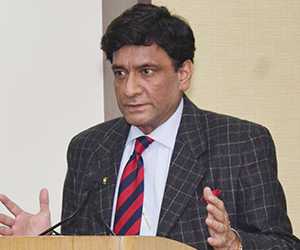

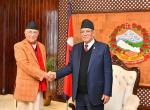
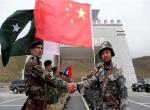

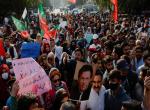
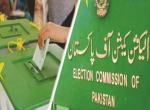
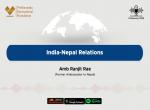

Post new comment